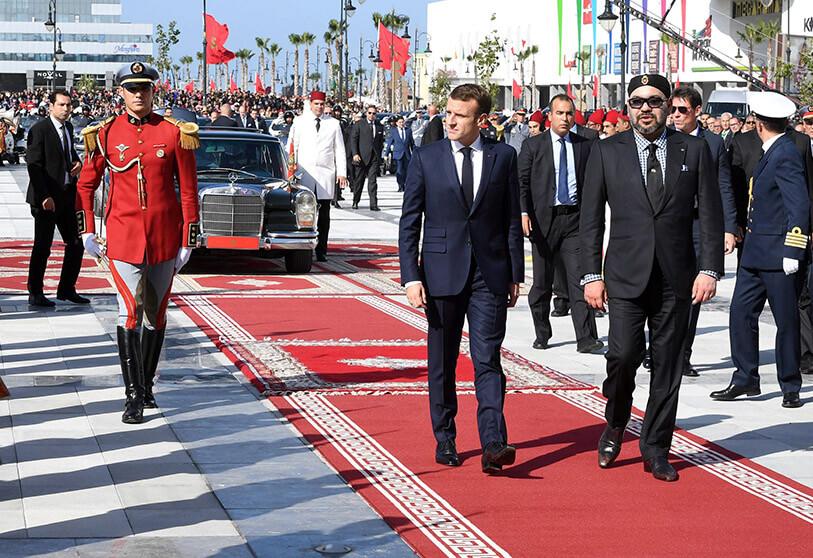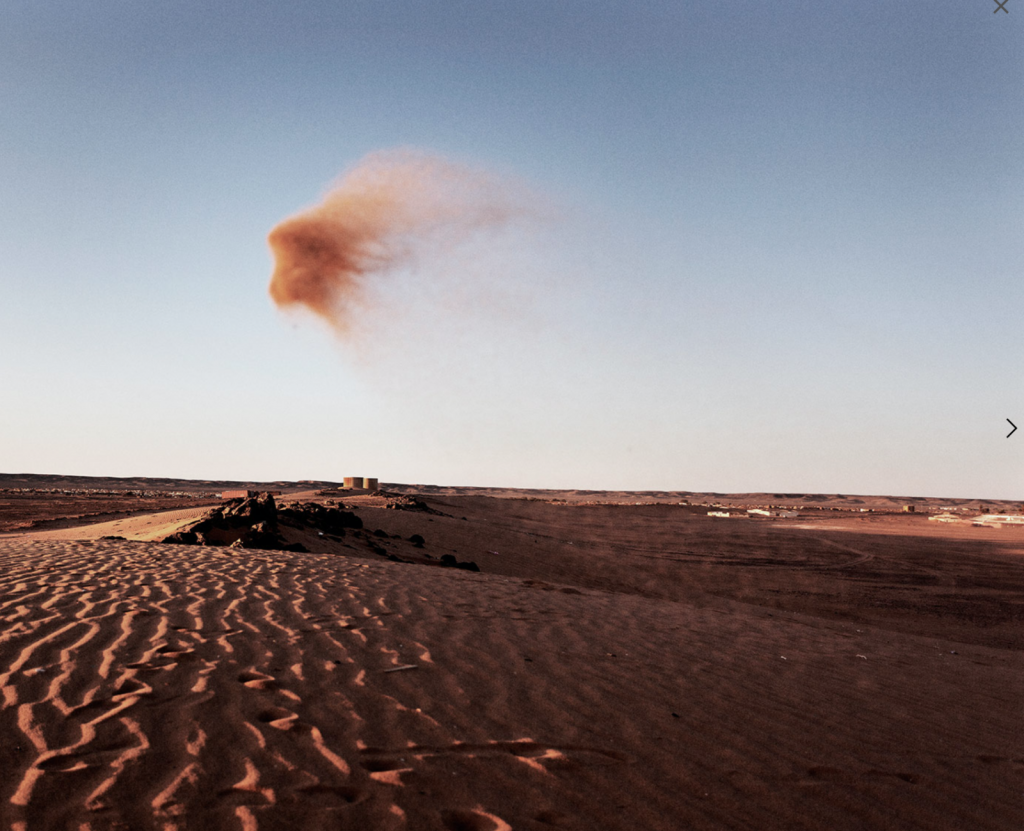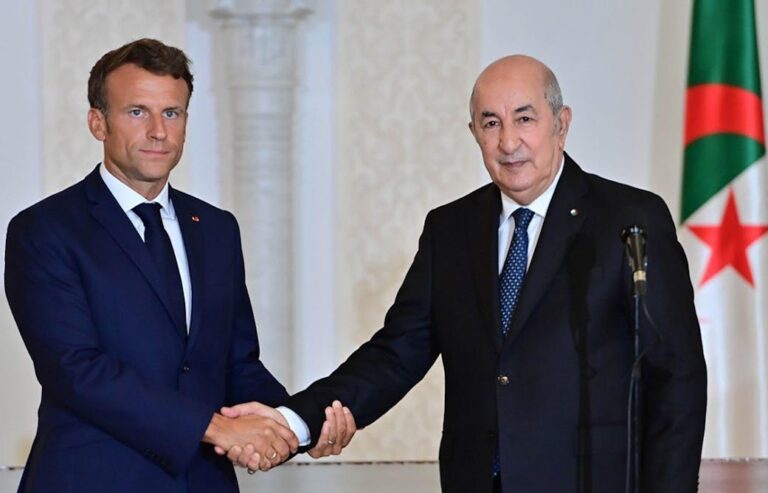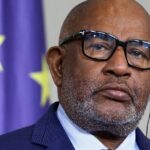After years of diplomatic tensions, France has reversed course on its decades-old position by recognizing Morocco’s sovereignty over the Western Sahara.
In late July, Paris formally endorsed Morocco’s autonomy plan for the disputed territory, declaring that “the present and future of Western Sahara fall within the framework of Moroccan sovereignty.”
Algeria promptly recalled its ambassador and hinted at possible sanctions against Paris.
France initially gave a nod to Morocco’s autonomy plan when Rabat presented it to the UN in 2007. However, in recent years, Paris had kept quiet on the issue, wary of ruffling feathers with Algeria, a key African ally.
In 2022 Moroccan King Mohammed VI made it clear that the era of diplomatic tightrope walking was over, and a clear position on Western Sahara was the only measure of true friendship with Rabat.
Morocco took control of most of Western Sahara in 1975 following an agreement with Spain and Mauritania. This led to a guerrilla war with the Polisario Front, which insisted that the region belonged to it.
While Algeria doesn’t claim the territory, it is a staunch supporter of the Polisario Front’s quest for independence. The front’s self-proclaimed government is based in Algeria and rejects any solution that doesn’t include independence.
The UN does not recognise the sovereignty claims of either Morocco or the Polisario Front. Morocco considers its sovereignty over Western Sahara an unshakable national cause.
In 2020, the US recognised Rabat’s claim over the territory in exchange for Morocco normalising relations with Israel. Since then, Morocco has been pressing its Western allies for more definitive support. Under this pressure, Spain reversed its four decades of neutrality on the conflict in 2022 and endorsed Morocco’s autonomy plan.
Spain became the first commercial partner of Morocco, surpassing France, while the United States overtook France for the first time as the kingdom’s top foreign investor.
Еhose allied with Morocco over its Western Sahara policy were reaping the rewards of Rabat’s friendship. Meanwhile, Algeria has failed to deliver on key promises to France, such as investment opportunities and access to the Sahel.

More on this story: Rabat urges France to come clear on Western Sahara
Under President Emmanuel Macron, elected in 2017, Paris has made half-hearted attempts at historical reconciliation with its former colony, but without fully meeting Algeria’s demands.
Macron’s lukewarm efforts failed to persuade Algiers to prioritise Paris as a key ally. “Thus, while France struggled to penetrate the Algerian market, it was losing ground in the Moroccan market.
At the same time, France has been losing influence in other parts of Africa, particularly in the Sahel region. After Mali and Burkina Faso, the French army withdrew from Niger in 2023. In one coup after another, France faced increasing opposition from local populations and new authorities.
Paris had hoped Algeria would act as a mediator, but the North African state was also losing its influence in the Sahel after Niger rejected its mediation efforts. Meanwhile, Morocco was securing geopolitical and economic deals with Niger, Mali, Burkina Faso, and other states in the coup-stricken region.
So, it became imperative for France to rethink its strategy . The lobbying of French diplomats and business circles for a shift closer to Morocco eventually convinced the presidency.
On 31 July, Algerian Foreign Minister Ahmed Attaf stated that his country is considering further actions to punish France for its shift on Western Sahara, with gas export sanctions among Algeria’s strongest options.
Since the start of the Ukraine war, Algeria has wielded considerable influence as a key energy supplier to Europe, particularly in natural gas, including to France. Thus, imposing economic sanctions could have far-reaching consequences for Algeria’s own economy, which heavily relies on hydrocarbon exports.
Cutting gas exports to France might also strain Algeria’s relations with other European nations, who could see such sanctions as destabilising for the EU bloc.
In recent years, Algerian gas has accounted for only 8% of France’s gas consumption by value. By volume, according to the French Ministry of Energy, Algeria supplied nearly 12% of France’s natural gas imports in 2023.
However, Algeria, as a leading gas exporter, is bound by long-term contracts that are difficult to terminate, even for a country known for its impulsive diplomacy. For instance, despite Spain’s policy shift on Western Sahara in 2022, Algeria continued to supply gas to Madrid despite their diplomatic standoff.
Algeria will likely honour its existing commitments but may be less accommodating regarding future contracts.
Following Macron’s decision, right-wing parties, who have long been sceptical of the centrist leader, rallied behind the new position.
According to Marine Le Pen, head of the far-right National Front, The French government has been too slow to acknowledge Morocco’s longstanding commitment to stabilizing and securing Western Sahara, an integral part of the Sherifian kingdom. Left-wing parties, traditionally more aligned with Algeria, have criticized Macron’s decision as an individual choice.
Macron’s party came second in the legislative elections, so the president is expected to appoint a new Prime minister from the New Popular Front NFP, the broad left-wing alliance that won the early legislative elections in July.
Macron’s decision compared to Trump’s recognition of Rabat’s sovereignty over Western Sahara – a move that the former Republican president made in his final days in office.
Macron’s step has already disturbed the NFP alliance, which is hanging by a thread under the pressure of choosing a prime minister from the four-party left-green alliance.
The Socialist Party, the French Communist Party, and Les Écologistes (The Greens) – all members of the NFP – have voiced their opposition to France’s new stance.
La France Insoumise (France Unbowed), the most influential party in the alliance, has yet to officially comment. Its leader, Jean-Luc Mélenchon, born in Tangier, Morocco, is known for his support of Morocco’s sovereignty over the territory, unlike most of his party comrades.

More on this story: Lessons to be learned from the deadlock of decolonization of Western Sahara




